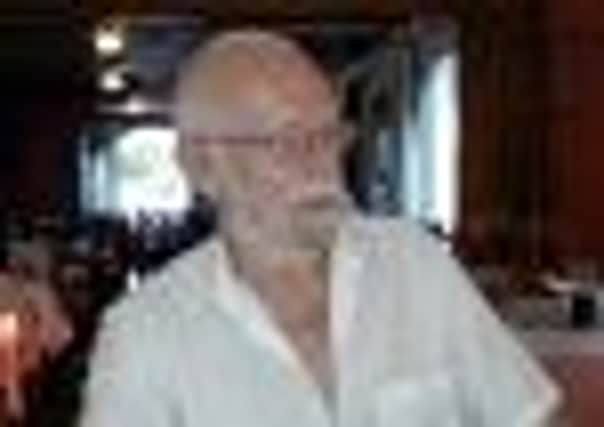Harold Massingham


Massingham was born in Mexborough in 1932, “the son of a collier” as it always said in the biographical notes in magazines and on the flaps of books, and he went to the same school as Ted Hughes; it always seemed to me that in many ways he wrote in Hughes’s shadow but was his poetic equal.
I first met him in the mid-1970s when he came to read his poems to a group of us at Lumb Bank, the writers’ centre in Ted Hughes’s old house in Heptonstall. I was a young man who wanted to be a poet but I still wasn’t sure if you could be a poet and speak like me.
Advertisement
Hide AdAdvertisement
Hide AdHarold walked into the room; in fact he commanded the room as he strode through the door, and he definitely spoke like me. He was wearing a white shirt and he had a goatee beard: he looked like a poet should. He opened his mouth and the South Yorkshire tones boomed out.
“I am the complete sensualist,” he said. “I drink lager and I take snuff!” I was hooked. Later, towards the end of the reading in the sitting room, he stopped halfway through a poem. “I can’t give you any more. I’m spent,” he said.
I was hooked again. That night I bought his book Frost Gods, published by Macmillan; it’s a fantastic mixture of Mexborough and Anglo Saxon, with its glorious descriptions of Old Denaby’s chimneys “smoking like snuffed candles” and the idea of Agnes Cassilda Adams’s “Yorkshire Puddings like wet window leathers”.
After leaving Mexborough Grammar he went to Manchester University and then worked as a teacher before working for Manchester University’s extra-mural department. His first collection of poems, Black Bull Guarding Apples, came out in 1965 and perhaps this book really does feel the ripples of Ted Hughes’s influence. He describes old miners “down there, under woodland, under professions, lungs could suffer like new quarries” and in the title poem of the collection the black bull has “brains blacker than blackberries” and “he stands, a watch-bull squarely on four black feet”.
Advertisement
Hide AdAdvertisement
Hide AdI remember buying the book, which I’d only heard of before, at a discard sale at Goldthorpe library and whooping on the street as I ran to the bus stop.
Frost Gods, which came out in 1971, is a marvellous achievement in which Massingham was writing at the height of his powers. He describes frost as an exploding “air-berg”, he gives us a picture of a cow standing “heavier than grand mahogany” and of a walk down a lane where “rain had siled it down for days” and “my collar clung like Sellotape, my clothing like surgeon’s gloves”.
He also wrote poems for children, and I encountered him again in the 1980s when we both read our poems on Radio 3’s Poetry Now programme, and I was too shy to tell him how much his work meant to me.
Later I asked him to come and read his poems at a group I was running in Wath on Dearne, near Mexborough; he arrived by bus from Manchester because of a train strike and delivered a memorable reading to the little gang of us upstairs in the George and Dragon.
Advertisement
Hide AdAdvertisement
Hide AdHe stayed at our house and later I nervously cooked pork to a cinder as he stood and watched. “You’re giving that chop some hell”, which felt like the kind of thing a poet should say, as the room filled with smoke.
After a period of poetic silence he published Sonatas and Dreams with the Yorkshire publisher Arc press in 1992, and the work still rang with the music of South Yorkshire and the weight of lived experience.
Harold Massingham was also known as a crossword compiler, and it seems to me that his poetry often had the teasing quality and delight in language that comes from being a crossword setter or solver; he wrote crosswords for The Listener and the Independent and his description of crossword-setting could also apply to his poetry: “Realisation of ideas, lad!”
Harold had lived in Spain for many years before coming back to the UK earlier this year; his wife Pat predeceased him and he had three sons and one daughter.